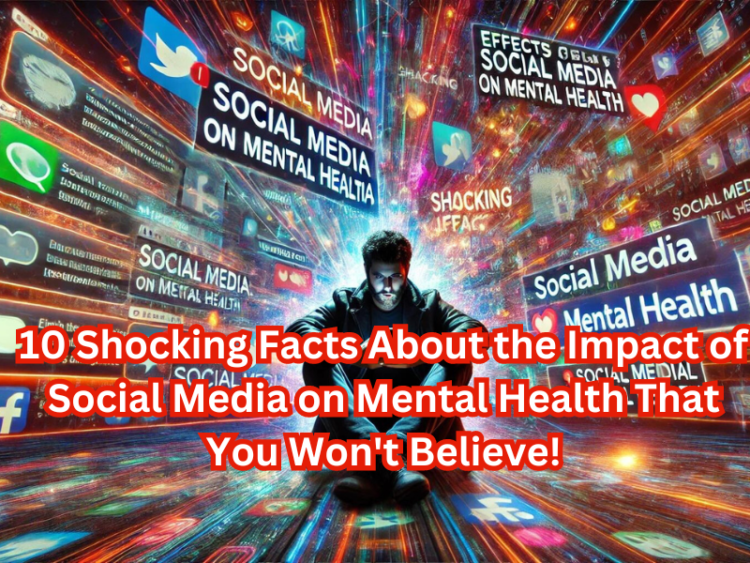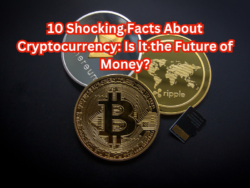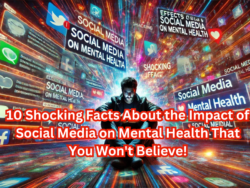10 Shocking Facts About the Impact of Social Media on Mental Health That You Won’t Believe!

Social media has become an inseparable part of our daily lives, connecting us in ways that were unimaginable just a few decades ago. But behind the likes, shares, and follows, there’s a darker side that many people are unaware of. The impact of social media on mental health is profound, and these 10 shocking facts will make you think twice about your online habits!
1. Social Media Is Linked to Increased Anxiety and Depression
Research shows a strong connection between social media use and mental health issues like anxiety and depression. Constant exposure to curated lives and idealized images can lead to feelings of inadequacy, loneliness, and low self-esteem. The more time people spend on platforms like Instagram and Facebook, the more likely they are to experience these negative emotions. It’s a vicious cycle that’s affecting millions worldwide.
2. The Rise of Social Media Has Coincided with a Spike in Teen Suicide Rates
Teen suicide rates have alarmingly increased over the past decade, and many experts believe social media is a contributing factor. The constant pressure to fit in, the prevalence of cyberbullying, and the exposure to harmful content can create a toxic environment for vulnerable teenagers. This trend is particularly concerning because it highlights the potentially life-threatening impact of social media on young minds.
3. Social Media Addiction Is Real—and It’s Growing
Addicted to social media? You’re not alone. Social media platforms are designed to be addictive, with features like endless scrolling, notifications, and algorithm-driven content that keep users coming back for more. This addiction can lead to serious consequences, including sleep disorders, decreased productivity, and strained relationships. The addictive nature of social media is so powerful that it’s been compared to substance addiction in its effects on the brain.
4. FOMO (Fear of Missing Out) Is Driving Social Media Use
Fear of missing out (FOMO) is a powerful force behind social media engagement. Seeing friends, celebrities, or influencers enjoying life can make users feel left out or inferior, driving them to check their feeds more frequently and stay connected at all costs. This constant need for validation and connection can lead to stress, anxiety, and a distorted view of reality.
5. Social Media Is Changing How We View Ourselves
Social media is reshaping self-perception in ways we don’t fully understand yet. Constant exposure to filtered, edited, and staged photos can distort our body image and self-worth. Many users compare themselves unfavourably to others, leading to issues like body dysmorphia and eating disorders. The pressure to present a “perfect” online persona can also contribute to a lack of authenticity and increased feelings of isolation.
6. Social Media Is Harming Our Sleep Patterns
Scrolling through your phone before bed? It might be ruining your sleep. The blue light emitted by screens can interfere with your body’s natural sleep-wake cycle, making it harder to fall asleep and get quality rest. Moreover, the mental stimulation from social media can keep your brain wired, leading to insomnia and other sleep disorders. Poor sleep, in turn, exacerbates anxiety, depression, and other mental health issues, creating a dangerous loop.
7. Cyberbullying Is More Prevalent Than Ever
Cyberbullying is a growing problem that affects millions of people, especially teens. Unlike traditional bullying, cyberbullying can happen 24/7 and reach a wide audience almost instantly. The anonymity of the internet emboldens bullies, making it easier for them to harass others without facing immediate consequences. The impact of cyberbullying on mental health can be devastating, leading to depression, anxiety, and even suicide.
8. Social Media Can Exacerbate Loneliness
Ironically, the platforms designed to connect us can actually make us feel more isolated. Studies have shown that heavy social media use is associated with increased feelings of loneliness, especially among young adults. This is partly because online interactions often lack the depth and authenticity of face-to-face communication. The more time we spend online, the less time we have for real-world connections, leading to a paradox of being “connected” but alone.
9. Social Media Algorithms Can Create Echo Chambers
Social media platforms use algorithms to show users content that aligns with their interests and beliefs. While this might seem convenient, it can also create echo chambers where users are only exposed to viewpoints that reinforce their existing opinions. This can lead to polarization, misinformation, and a distorted perception of reality, all of which can have negative effects on mental health by fostering a sense of division and hostility.
10. Social Media Detoxes Are Becoming a Necessity
With the growing awareness of social media’s impact on mental health, more people are taking “social media detoxes”—periods of time when they disconnect from all online platforms. These detoxes have been shown to improve mood, reduce anxiety, and enhance overall well-being. It’s a clear indication that our relationship with social media needs to be managed carefully to protect our mental health.
Conclusion
The impact of social media on mental health is complex and far-reaching. While these platforms offer many benefits, they also pose significant risks, especially when used excessively. Understanding these risks is the first step toward healthier online habits. Whether it’s limiting screen time, engaging in digital detoxes, or simply being more mindful of how social media affects you, taking action can make a big difference.
Share this article with your friends and family to spread awareness about the impact of social media on mental health. It’s time to take control of our digital lives!





